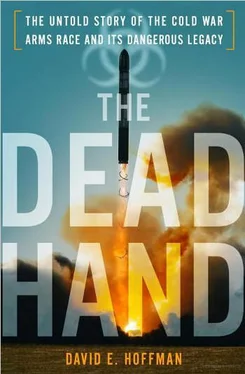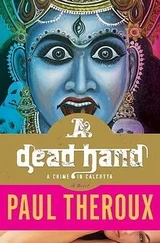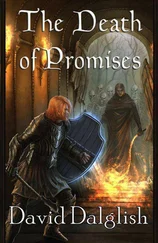Gorbachev had spent the last two years warning the United States against weapons in space—precisely the purpose of Skif-DM. As Gorbachev was briefed, walking around the huge booster on May 12, with other Politburo members trailing behind, examining the white rocket and black cylinder, he abruptly told the designers: “The Politburo is not going to allow you to launch this rocket.” Gorbachev had said many times he did not want an arms race in space—and he meant it.
Boris Gubanov, the chief designer, was dumbfounded, but tried to carry on. He explained to Gorbachev details of the heavy launcher: fuel, tremendous pressures and temperatures at launch. In the next hour or so, Gorbachev softened. He asked if they could wait a few months. Gubanov said it was impossible: the rocket was ready, it was fueled, people worked around the clock, they could not sustain such a pace. At lunchtime, Gubanov recalled, the word came back: permission to launch. The next day, Gorbachev praised the workers at Baikonur. And he reminded them, as he had done so often before, “We are categorically against moving the arms race into space.”
Gorbachev left the cosmodrome on May 14. At 9:30 P.M. the next day, the Energia roared into the night sky with the Skif-DM payload inside the mysterious black container, Polyus .
The Energia booster performed flawlessly. Four hundred and sixty seconds after launch, the Polyus separated from the Energia .
Then something went wrong. The Polyus was supposed to turn 180 degrees and fire engines to push itself into higher orbit. Instead, it kept turning all the way to 360 degrees, so when the engines fired, it was in the wrong direction. It shot itself back down toward Earth. The Polyus flew straight for the Pacific Ocean.
The black Polyus cylinder fell into the sea. All work on the Skif project came to a halt.
Gorbachev did not attempt to revive the Skif. He did nothing—another step toward his goal of slowing the arms race. 29
The most devastating defeat for the Soviet military in 1987 came not directly from Gorbachev, but he exploited it. It came at the hands of a dreamy nineteen-year-old youth who lived in Hamburg, Germany. Mathias Rust was deeply disappointed by the failure of Reagan and Gorbachev to make a deal at Reykjavik. He decided to make a personal protest. He rented a single-engine Cessna 172P, a sports airplane, and told his family he was going to tour Scandinavia. He flew it to the Faroe Islands on May 13, and the next day to Keflavik, Iceland, the airfield from which Reagan and Gorbachev had departed after the summit.
After further travel, on May 28, he took off from Helsinki, having filed a flight plan for Stockholm. Twenty minutes into the flight, he switched off his communications gear and turned east. Finnish air traffic controllers feared he had crashed and launched a rescue effort. Rust disappeared into the clouds.
It was a holiday in the Soviet Union: “Border Guards Day.” 30At 2:25 P.M., the Cessna, with a small German flag on the tail, flying low, crossed a beach into Estonia and Soviet airspace. Thirty-one minutes later, Rust passed near the town of Kohtla-Yarve, at approximately three thousand feet. He set a course for Moscow. The Soviet air defense system picked up the plane, alerted the antiaircraft batteries and scrambled a fighter jet. The Soviet jet pilot zoomed past the small Cessna—flying seven times the speed of the small craft—and reported that it was a light plane, white, with a blue stripe, at under three thousand feet. Rust saw the Soviet jet, recognized the red star, and could spot the oxygen mask and coveralls of the pilot. He feared he would be shot down. “My heart fell into my pants,” he recalled. But then nothing happened, the fighter disappeared and Rust flew on toward Moscow.
On the ground, Soviet air and ground defenses, built up over decades to warn of American bomber fleets bearing nuclear weapons, went limp. Radar operators made no effort to determine the type of airplane that had just invaded their space. They made no immediate report to the headquarters of the Air Defense Forces. The rapidly changing weather and a certain blurriness on the radar screen caused the operators to doubt whether it was a plane at all; they thought it might be a flock of birds. 31The fighter jet had only forty minutes of fuel at low altitudes, and could not remain aloft longer to search. Another group of jets were scrambled; one spotted Rust, but they did nothing. Then the radar operators lost track of Rust altogether at 3:58 P.M. No further action was taken. At 6:38 P.M., the Moscow regional air defenses switched to “routine watch duty.”
At exactly that moment, Rust was approaching Moscow, confused by its sprawling size. He spotted the cubelike Rossiya Hotel, and near it, Red Square. He approached for a landing, but there were people in the square, and he feared casualties, so Rust pulled up and circled again, and again.
On the third approach, Rust spotted a wide, open road bridge, and landed on it at 6:45 P.M., taxiing the plane toward Red Square and St. Basil’s Cathedral. A crowd gathered around as Rust, with oversized aviator eyeglasses and an orange jacket, climbed out and announced he was on a mission of peace. He was arrested by the KGB and taken away.
Rust’s solo flight riveted the attention of the country and the world. Jokes were told in Moscow in the days that followed: a group of citizens gathered in Red Square with their luggage. When a policeman asked why they were there, they answered, “We are waiting for the flight to Hamburg.” But Rust’s daring stunt was no joke for the military. It came at the dawn of the age of low-flying, radar-evading cruise missiles. If he could make it all the way to Moscow and be mistaken for a flock of birds, then what of the country’s defenses against cruise missiles? The Soviet military was red faced. The rules after the Korean Air Lines disaster in 1983 were not to shoot at civilian intruders, but to force them to land. They had not even tried.
Gorbachev was in Berlin meeting with Warsaw Pact leaders—telling them of the new Soviet military doctrine—when he got word. He told the Soviet allies that Rust’s stunt “was no reason to doubt the efficiency of our technology or the reliability of our defense,” but in private, he was floored. “I was utterly shaken and completely at a loss as to how this could have happened,” he recalled. 32As Gorbachev stepped off the plane back in Moscow, Chernyaev recalled, his eyes were “flashing with anger.” Chernyaev wrote Gorbachev a note before a Politburo meeting the next day. “A great military power was reduced to a joke in the space of a minute,” he said. “What happened forces us to reflect again on the state of the army. Our equipment wasn’t at fault. To spot such a tiny aircraft, 1930s-era technology would suffice. Rather it was a broader carelessness and lack of responsibility that was to blame, not an episodic problem but something endemic that reflects a much more serious illness in the armed forces.” Chernyaev pleaded with Gorbachev to consider undertaking a reform of the military and to fire the defense minister, Sokolov. “Maybe I’m blinded by anger and emotion over this shameful incident, which, in one moment, devalued not only our air defenses but our entire military structure. But I believe that perestroika and new thinking cannot be successful without a reform of the army.” 33
At the Kremlin, the Politburo meeting was tense. Gorbachev, mocking and furious, said the Rust intrusion showed the impotence of the defense ministry. The first deputy minister of defense, Pyotr Lushev, began to brief the Politburo on what happened. He described how the plane had flown undetected toward Moscow.
Читать дальше












